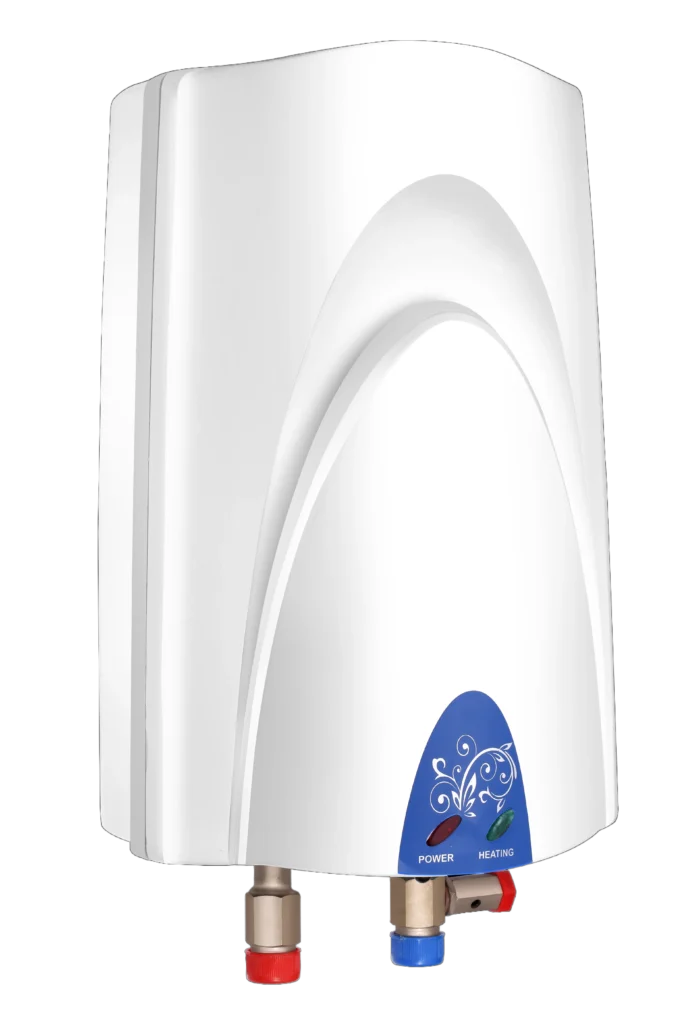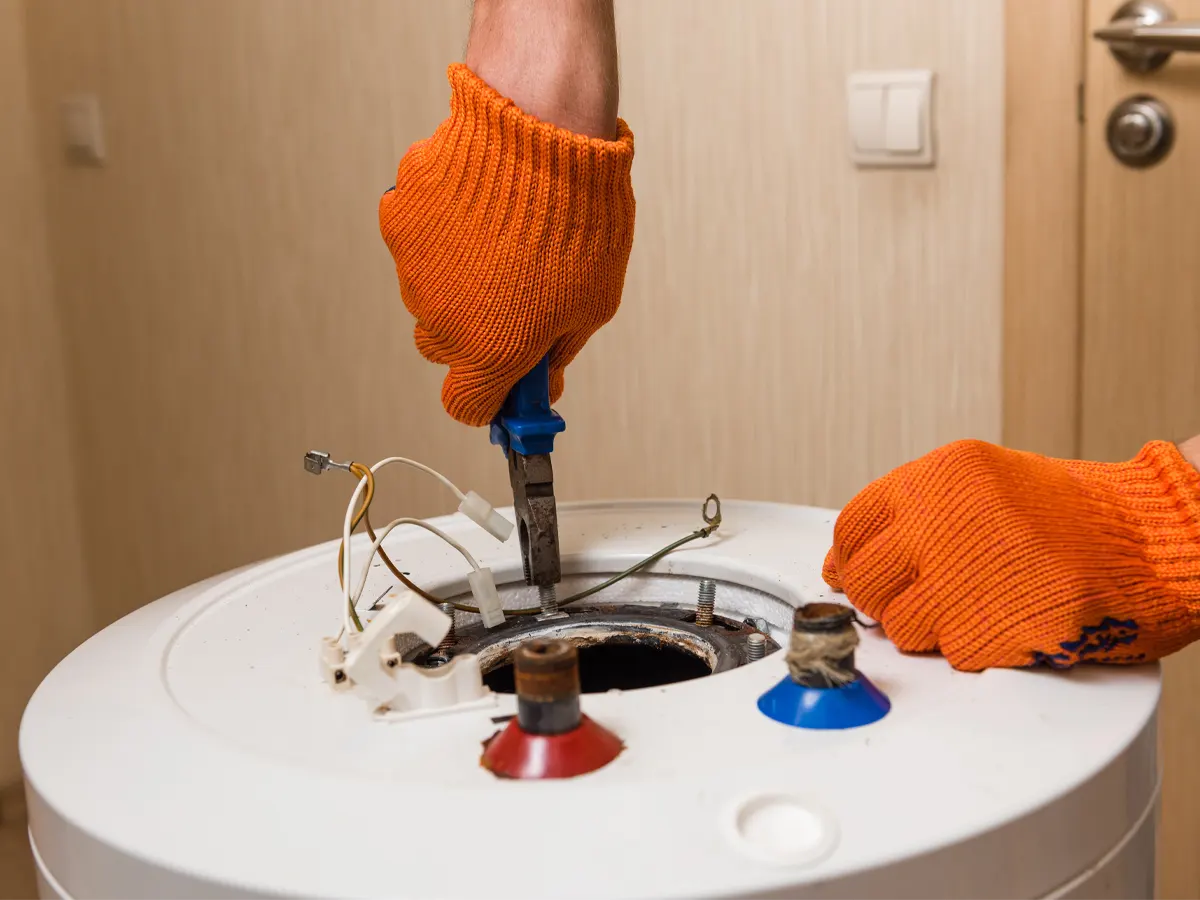
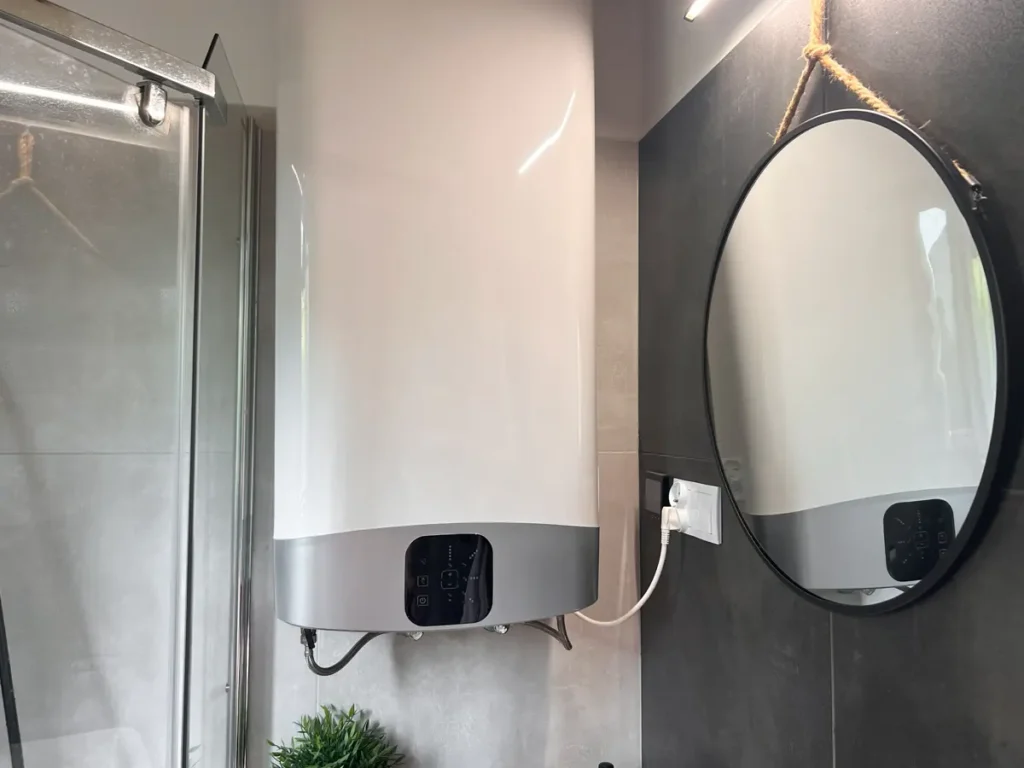
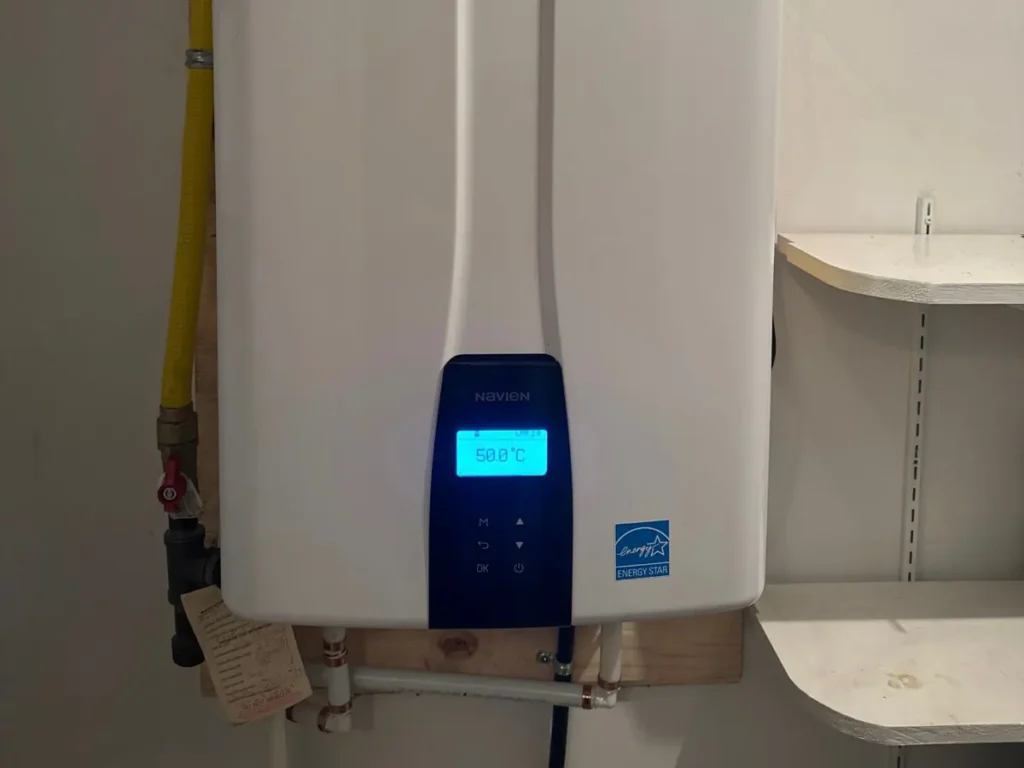
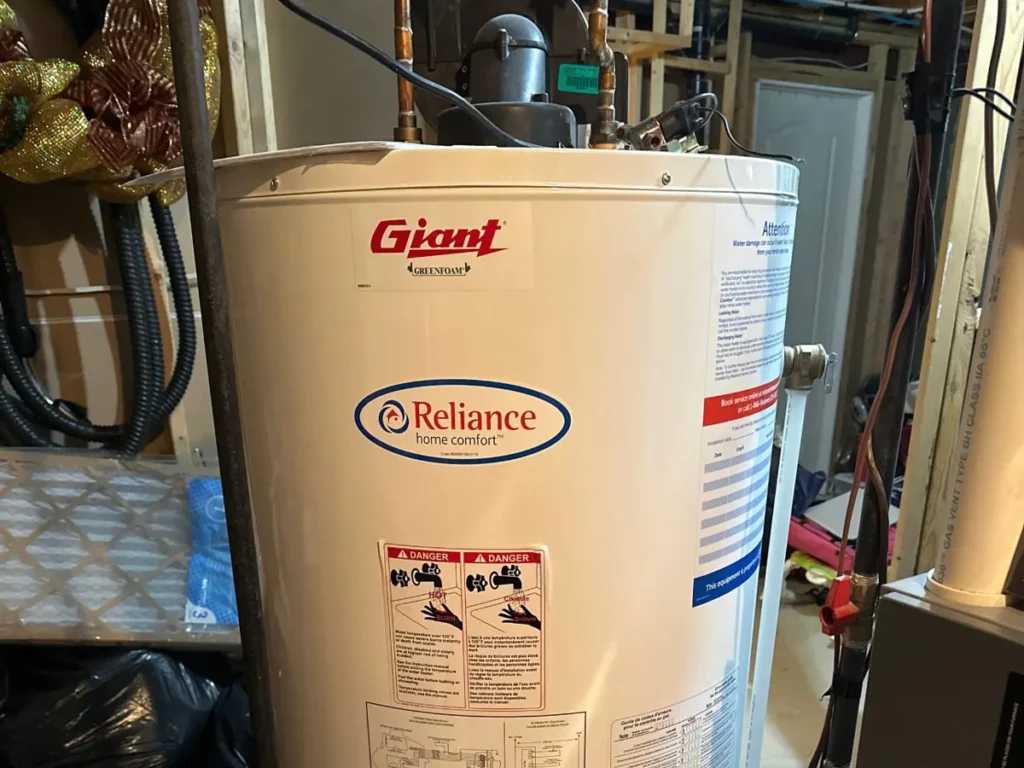
Lack of Hot Water
If your water heater isn’t producing enough hot water, it could be due to a faulty thermostat, sediment buildup, or a malfunctioning heating element. In Toronto’s cold climate, having a reliable hot water supply is crucial, and addressing this issue promptly ensures your home remains comfortable.
Leaking Tank
Leaks around your water heater can lead to significant water damage and reduce the appliance’s efficiency. Common causes include corrosion, loose fittings, or a damaged pressure relief valve. Identifying and repairing leaks early can prevent costly repairs and maintain the integrity of your home’s plumbing system.
Strange Noises
Popping, cracking, or banging noises coming from your water heater are often signs of sediment accumulation at the bottom of the tank. This buildup can cause the heating elements to overheat and reduce the heater’s lifespan. Regular maintenance, including flushing the tank, can eliminate these noises and enhance performance.
Inconsistent Water Temperature
Fluctuating water temperatures can result from a malfunctioning thermostat, heating elements, or inadequate insulation. Ensuring your water heater is properly calibrated and maintained helps maintain a steady and comfortable hot water supply for your household needs.
Discolored or Rusty Water
Discolored or rusty water indicates corrosion inside the water heater tank. This not only affects water quality but can also compromise the tank’s structural integrity. Regular inspections and timely replacement of older units can prevent rust-related issues and ensure clean, safe water for your home.
Water Heater Not Turning On
If your water heater won’t start, it may be due to electrical issues, a tripped breaker, or a faulty ignition system in gas models. Ensuring a reliable power or fuel supply and addressing these issues quickly can restore functionality.








